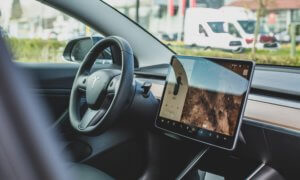The new self-driving car service from Lyft, called Level5, just published its first Voluntary Safety Self-Assessment (VSSA) report offering a view on how the company plans to make autonomous vehicles safer to use.
As a result of the data that Lyft gathered from its ride-hailing business, the company wants to focus on the safety of road users. Vulnerable road users (VRUs), pedestrians, bicyclists, and scooter riders are a concern in dangerous situations. Lyft wants its vehicles to mitigate risk by providing users with 24/7 pre-ride and in-app support, thus increasing the trust level that falters in the face of autonomous vehicles in America.
By running simulations, closed-course, and on-road operations tests, the company wants to advance the technology even further. All the synthetic simulations are human-operated at this moment, with a pilot that assists the self-driving car, and a co-pilot focused on collecting any data and metrics that can help. Lyft also stated that all AV developers and stakeholders must collaborate and share best practices to create a system that is safe, effective, and transparent. As a core member of the Automated Vehicle Safety Consortium (AVSC), the company wants to create the best practices for industry metrics to further the safety of self-driving vehicles.
In a perfect world, envisioned by the company, cities designed for people include a continuous presence of pedestrian and micro-mobility road users. With that ecosystem in place, Lyft believes that the self-driving car will be a critical tool for future transportation. They also want companies to be more thoughtful, diligent, and collaborative so they can reach that goal together.
36,560 people died in 2018 in the US, according to the National Highway Traffic Safety Administration, this includes an alarming increase of vulnerable road users. Lyft thinks that there is an opportunity for a better way with the aid of self-driving cars and collaboration.
Follow TechTheLead on Google News to get the news first.

























